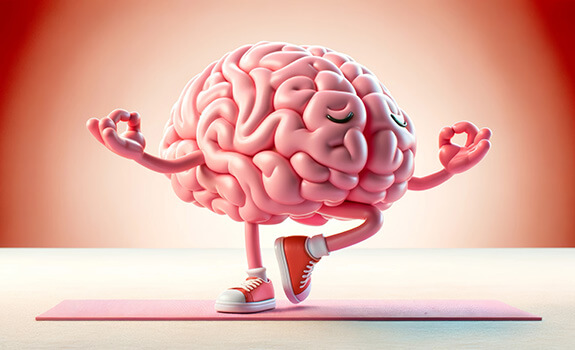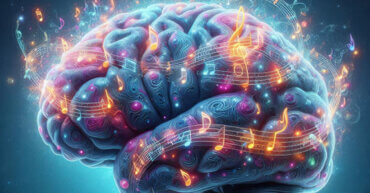News•February 17, 2025
Balance and Cognition: A Symbiotic Relationship

By Ram Rao, Ph.D., Principal Research Scientist for Apollo Health
Balance and cognition, two pillars of human functionality, are intricately linked in ways that profoundly impact our overall health and quality of life. While balance primarily governs physical stability, cognition steers mental processes like memory, focus, and decision-making. Together, they create a symbiotic and dynamic interaction that highlights the interconnectedness of body and mind.
Physical balance relies on the harmonious coordination of the vestibular system, sensory input, and motor control — all of which are orchestrated by the brain. When balance is disrupted, whether by injury, aging, or disease, the cognitive load often increases as the brain works harder to compensate. For instance, walking on uneven terrain requires not just physical stability but also the cognitive ability to adapt, focus, and respond to potential hazards. This dual demand highlights the vital connection between balance and executive function.
Conversely, cognition influences balance. Tasks that require simultaneous physical and mental engagement — such as walking while holding a conversation — demonstrate how cognitive control supports physical stability. When cognitive functions like attention or memory are impaired, even simple physical tasks like walking can become challenging. These interactions become especially evident in older adults, where a decline in balance and cognition often coexist, leading to a vicious cycle of reduced activity and increased risk of falls.
Shared neuronal pathways further illuminate this relationship. The cerebellum, traditionally viewed as the brain’s coordination center, plays a dual role in balance and higher-order cognitive processes. Neurodegenerative diseases such as Parkinson’s and Alzheimer’s exemplify this overlap, as they frequently manifest with both physical instability and cognitive decline. These conditions underscore the importance of addressing balance and cognition together in health interventions.
Fortunately, the link between balance and cognition offers opportunities for holistic improvement. Engaging in physical activities that challenge balance — like yoga, tai chi, or single-leg exercises — not only enhances stability but also promotes neuroplasticity, the brain’s ability to adapt and grow. Similarly, cognitive training through puzzles, memory games, or learning new skills can complement physical exercises to maintain sharpness and agility.
Mindfulness practices, such as meditation and deep breathing, add another layer of benefit. By reducing stress, these practices improve focus and coordination, fostering a harmonious connection between mind and body. These integrative approaches reflect the hope that lies at the heart of maintaining balance and cognition — that through intentional care, we can preserve the unity of body and mind, even in the face of challenges. The intertwined nature of balance and cognition reminds us of the profound resilience and adaptability of the human body. By nurturing both, we can uphold the foundation of physical and mental vitality, ensuring a life of stability, clarity, and purpose.




